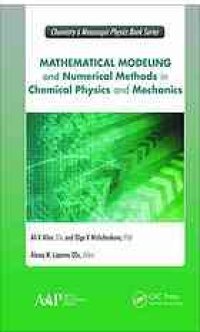
Ebook: Mathematical modeling and numerical methods in chemical physics and mechanics
- Tags: Mechanical engineering, Data processing, Chemistry Physical and theoretical, Data processing, TECHNOLOGY & ENGINEERING, Mechanical
- Series: Innovations in chemical physics and mesoscopy
- Year: 2016
- Publisher: Apple Academic Press
- Language: English
- pdf
"The use of mathematical modeling in engineering allows for a significant reduction of material costs associated with design, production, and operation of technical objects, but it is important for an engineer to use the available computational approaches in modeling correctly. Taking into account the level of modern computer technology, this new volume explains how an engineer should properly define the physical Read more...
Abstract: "The use of mathematical modeling in engineering allows for a significant reduction of material costs associated with design, production, and operation of technical objects, but it is important for an engineer to use the available computational approaches in modeling correctly. Taking into account the level of modern computer technology, this new volume explains how an engineer should properly define the physical and mathematical problem statement, choose the computational approach, and solve the problem by proven reliable computational approach using computer and software applications during the solution of a particular problem. This work is the result of years of the authors' research and experience in the fields of power and rocket engineering where they put into practice the methods of mathematical modeling shown in this valuable volume. The examples in the book are based on two approaches. The first approach involves the use of the relatively simple mathematical system MathCad. The second one involves the solving of problems using Intel Visual Fortran compiler with IMSL Libraries. The use of other software packages (e.g. Maple, MathLab, Matematica, etc.) or compilers (C, C++, Visual Basic, etc.) for code is equally acceptable in the solution of the problems given in the book. Intended for professors and instructors, scientific researchers, students, and industry professionals, the book will help readers to choose the most appropriate mathematical modeling method to solve engineering problems, and the authors also include methods that allow for the solving nonmathematical problems as mathematical problems."